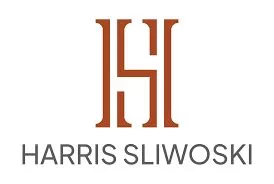- within Employment and HR and Strategy topic(s)
Yesterday late afternoon, Oregon cannabis wholesaler Jefferson Packing House (JPH) filed another dormant commerce clause (DCC) challenge to protectionist state cannabis laws. You can view the complaint here. I say "another" DCC challenge because JPH prosecuted DCC litigation in late 2022; and also because several DCC cannabis lawsuits have been filed in recent years, with some succeeding as of late.
What is the dormant commerce clause, and how does it relate to state cannabis programs?
The DCC is an implied constitutional principle, derived from the commerce clause. It prohibits states from enacting laws that discriminate against, or unduly burden, interstate commerce. The DCC applies even where Congress hasn't passed a law regulating a zone of commerce.
The policy here is to bar state protectionism, and to maintain competitive, open markets. If a statute is discriminatory, the state has the legal burden to justify the local benefits flowing from the law, and to show that the state has no other means of advancing the legitimate local purpose. If the state can't make that showing when held to account (sued by injured parties), its law will be struck down.
State marijuana programs uniformly prohibit trafficking of cannabis in- and out-of-state. They also contain other exclusionary rules in many cases. Chief among these are rules that prohibit nonresidents from owning local cannabis businesses. But really, the big kahuna is interstate marijuana sales.
Ultimately, the fundamental question is this: does the DCC protect interstate commerce of a controlled substance, even where Congress has legislated against the activity?
What have courts done with DCC cannabis lawsuits to date?
It's been a mixed bag. Looking through the cases, though, I'd argue for an emerging view that the DCC applies to state marijuana programs, and that states cannot enact protectionist laws. The Second Circuit Court of Appeals just said that in a New York case, as did the First Circuit a few years back, as to Maine. Federal district courts in Maryland and Michigan and Missouri have likewise found that the DCC applies to state and local marijuana programs.
Other courts, such as the Western District of Washington have held to the contrary, writing in one case that "citizens do not have a legal interest in participating in a federally illegal market"; and explaining in another that declaratory relief wasn't available for that same reason.
A final category of case is still pending: the most compelling here is Peridot Tree Inc. v. City of Sacramento. In short, the plaintiffs lost at district court, but filed an appeal with the Ninth Circuit in November 2024. A ruling there could have serious implications for the JPH case filed yesterday evening.
What's different about the JPH case in Oregon?
All of the cases mentioned above are challenges to state or local laws that require cannabis business owners to be residents. None have taken a bead on state rules that prohibit selling marijuana across state lines. The JPH case does exactly that, for both marijuana and hemp products that fall within the definition of "marijuana items" under Oregon state law.
JPH's rationale for overturning the ban on interstate sales is similar to DCC arguments made in the cases discussed above. That said, JPH is really going for it here. A ruling that interstate sales of state-legal marijuana must be allowed per the DCC, would be extraordinary.
What happened to the first JPH case, from 2022?
The first JPH case was filed in late 2022 and dismissed in early 2024. It was dismissed by JPH voluntarily, and essentially for political reasons. I have a bit more information than that, but should probably say less. For now, suffice it to say that JPH is free to file again, and I don't expect issues on procedural or standing grounds.
What would happen if JPH wins?
This question is supremely interesting and I haven't considered it fully. Oregon would have the right to appeal, of course, and likely would; and it's possible the Ninth Circuit would take up the case. The final stop would be the U.S. Supreme Court, though a very small percentage of federal cases get that far.
If Oregon laws banning interstate cannabis sales are overturned, some important questions include:
- Which state or states will also change their laws, voluntarily or otherwise, and accept cannabis from Oregon operators?
- What effects would interstate sales have on the Oregon market? (Presumably, Oregon would have to accept marijuana from other states as well.)
- What upward pressure, if any, would the ruling place on Congress to finally act?
Who is behind the JPH case?
As mentioned above, JPH is a licensed cannabis wholesaler in Oregon. The company's attorney is a talented litigator, Andrew DeWeese. Andrew is a friend of the law firm and my former, across-the-street neighbor. A big thanks to Andrew for sharing an advance copy of this well-drafted complaint with me last week. And best of luck.
Oregon Federal Court Lawsuit Filed, Seeking Interstate Cannabis Sales
The content of this article is intended to provide a general guide to the subject matter. Specialist advice should be sought about your specific circumstances.


